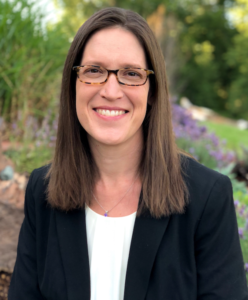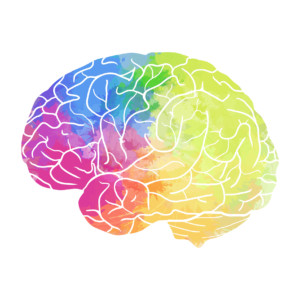Project Description
Neurodevelopment in Music Therapy:
From Research to Clinical Practice
CMTE Credits: 16; Ethics Credits: No
Course Instructors: Michelle Hardy, MM, MT-BC &
Blythe LaGasse, Ph.D., MT-BC
Current Course Live (online) Dates:
Live course has ended. If you are interested in our next offering, please click the link to be added to our email notification!
Time for Interactive Course: 820 Minutes; 16 CMTE credits; Registrants will also have access to Enhancing Your Musicality, worth additional credits of self study.
Location: Online Modules with Four Interactive Sessions; Interactive sessions will be provided on-demand for those who cannot attend live. Registrants can access materials after payment.
Course Cost: $300.
Prerequisites: None; Intended for board-certified music therapists or intentional equivalent.
Course Description
Music therapists who work with children with developmental disabilities must facilitate skill development in their clients while accounting for differences in neurological development. This CMTE will focus on children with different abilities, with an emphasis in autism spectrum disorder. Attendees will then learn about sensory accommodations that can help their clients be ready for optimal learning and engagement. Music therapy techniques for sensorimotor, cognition, communication, and social engagement will be presented throughout the CMTE.
Topics include:
- Basics of neuroscience and neuroscience of development
- Current research in development, with considerations of how this research informs clinical practice
- Supporting the child’s sensory, motor, communicative, and cognitive development in a strength-based approach
- Considering an assessment to determine strengths and goal areas to support


Learning Objectives:
Course Schedule
Registrants will be complete prep work of watching recorded lectures in each module. We will then meet weekly for 90 minutes to talk about application of the materials. We will record the meeting for those who cannot meet the live session times. All materials are provided in the course module on MTNED.
Module 1: Introduction and Sensory Foundation
Video Prep Work: (Watch before workshop)
Introduction and Neurodevelopment Basics: 45 minutes
Sensory Foundations: 25 minutes
Sensory Applications and Integrating Sensory: 35 minutes
Homework: 30 minutes
Live Workshop = 90 minutes (All will be recorded)
Module 2: Motor and Communication
Video Prep Work:
Motor Foundations: 20 minutes
Communication Foundations: 20 minutes
Homework: 30 minutes
Live Workshop = 90 minutes:
Module 3: Cognition
Prep Work:
Cognitive Foundations: 25 minutes
Cognitive Flexibility: 15 minutes
National Conference Session: 90 minutes
Homework: 30 Minutes
Live Workshop: 90 minutes
Module 4: Assessment and Evidence Base
Prep Work:
Watch Recorded Lecture on Assessment: 35 minutes
Evidence Based Practice and Objectives: 10 minutes
Homework: 30 minutes
Live Workshop: 90 Minutes
Participant words about the course:
I wish this course could have lasted a semester– Blythe and Michelle are so knowledgeable and also present the information in a way that is very practical and useful for music therapists. I loved having the asynchronous videos to watch in our own time and then having opportunities to de-brief on a weekly basis.
This course was unique and refreshing! I highly recommend it to anyone working with neurodevelopmental differences who wants to better understand how to support their clients.
This was the course I have been waiting for! Fabulous demonstration of the blending of a Neuroscience Informed Developmental Approach to music therapy.
Highly recommended! I gained an understanding of fundamental skills needed to improve my practice. This course encourages and challenges you to look at your skillset as a music therapist, and build on them. You also get a chance to work with others and collaborate.
This was such a fantastic course! Blythe and Michelle not only have a wealth of knowledge and experience, but are genuinely excited about sharing their experiences with others.
Course Instructors

Michelle Hardyis a published author and leader in the field of music therapy with a focus on supporting individuals with neurodevelopmental differences, specifically autism and sensory processing disorder. She has over 25 years of experience applying music therapy techniques to support sensory processing, sensorimotor integration, cognition, and communication. She has worked in schools, private clinics, and led transdisciplinary programs and teams of OTs, PTs, MTs, and STs. She is owner of Michelle Hardy Autism Services in San Diego, CA. She earned her master’s degree from Colorado State University, and her bachelor’s degree from Loyola University of New Orleans.

Blythe LaGasse holds a Ph.D. in Music Education/Therapy with a minor in Communication Neuroscience from the University of Kansas. Blythe has been practicing music therapy since 2001, with experience working with children and adolescents with different abilities and needs including autism, emotional/behavioral disorder, learning disabilities, and developmental disabilities. Blythe has advanced training working with people who have autism and motor/speech disabilities.
Course Details
Course Attendance: We recommend registrants attend all sessions, in order to get the most out of the CMTE. We will make all sessions available within 24 hours for those who cannot attend. Individuals who watch the recordings will submit a short paragraph on each section of the course from that evening. All sessions must be completed and submitted by April 15, 2025 for CMTE credits.
CMTE Credits: To obtain credits participants must attend all sessions and complete the course survey. If participants are unable to attend, they may watch videos on demand (available within 24 hours) and submit a short paragraph explaining their learning in the week’s materials. All sessions must be completed and submitted by April 15, 2025 for CMTE credits.
Course Minimum: This course will require a minimum of 12 people to run a session. Registrants will be notified about two weeks in advance of the start date if the course is moving forward or cancelled.
Technology Requirements: You must have an internet connection (DSL or higher), an internet browser (firefox, safari, etc…). We will use Zoom for all sessions. Registrants will also be able to access sessions 24 hours after the live session, on the MTNED website. Sessions will be available online until April 15, 2025.
Cancellation and Refund Policy: If you are not satisfied for any reason, you can request a refund of course fee in writing. Participants who are not able to view the session due to technology difficulties/errors will receive a full refund. All refunds will be processed within two weeks of a written request. Attendees who request a refund will not be issued CMTE credits.
CMTE Information: Neurodevelopment in Music Therapy: From Research to Clinical Practice is approved by the Certification Board for Music Therapists (CBMT) for 16 Continuing Music Therapy Education credits. Music Therapy & Neuro Ed #P-114 maintains responsibility for program quality and adherence to CBMT policies and criteria.
We want this course to be accessible, while also covering the expenses of the course. If you cannot afford the full cost of the course, please reach out to cmte@mtned.com to discuss options for a reduced course fee.
Group Rate – Please contact us at cmte@mtned.com to inquire about a discount for companies that enroll 5 or more of their employees.

